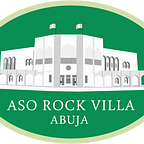FGN Policy Acronyms To Keep In Mind
(This List will be updated regularly)
ABP — Anchor Borrowers Programme: The ABP, launched by President Buhari in November 2015, is an initiative of the Central Bank of Nigeria that provides smallholder farmers with farm inputs in cash and kind and links them to processing firms (the ‘Anchor Companies’) who ‘offtake’ the produce.
APP — Agricultural Promotion Policy: The Federal Government’s Agriculture ‘Roadmap’, developed by the Federal Ministry of Agriculture and Rural Development. Download here
APT — Advisory Power Team, Office of the Vice President
BVN — Bank Verification Number
EAC — Economic Advisory Council, it was constituted by President Muhammadu Buhari. The council is to advise the President on economic policy matters, including fiscal analysis, economic growth and a range of internal and global economic issues while working with the relevant cabinet members and heads of monetary and fiscal agencies.
ECC — Emergency Coordination Center: The operational arm of the Federal Government’s Inter-Ministerial Task Force (IMTF) on the Humanitarian Situation in Northeastern Nigeria, and the critical enabler of the government-led multi-stakeholder humanitarian intervention in the region. Follow on Twitter: Emergency Coord. Centre
EEP — Energising Economies Programme
EEP — Energising Education Programme
ESC — Economic Sustainability Committee, it was established by President Muhammadu Buhari on March 30, 2020. The committee is being chaired by Vice President Yemi Osinbajo. The committee was charged with the responsibility of developing a clear Economic Sustainability Plan for the nation
FEC — Federal Executive Council
FMARD — Federal Ministry of Agriculture and Rural Development
FMBNP — Federal Ministry of Budget and National Planning
FMENV — Federal Ministry of Environment
FMF — Federal Ministry of Finance
FMITI — Federal Ministry of Industry, Trade and Investment
FMMSD — Federal Ministry of Mines and Steel Development
FMPR — Federal Ministry of Petroleum Resources
FMWR — Federal Ministry of Water Resources
FSP/BSF — Fiscal Sustainability Plan; Budget Support Facility: The Fiscal Sustainability Plan (FSP) is a 2016 reform programme that specifies conditions under which States can access the Federal Government’s N510 billion Budget Support Facility (BSF).
IP — Incremental Power: Incremental Power is an Initiative of the Ministry of Power, Works and Housing, to steadily and consistently boost power supply across the country while simultaneously diversifying Nigeria’s Energy Mix away from Gas to focus more on Hydro, Solar, and Wind Power.
MYTO — Multi-Year Tariff Order
NERGP — National Economic Recovery and Growth Plan: The NERGP is a coherent summary of Nigeria’s short and medium-term economic plans for the period 2017–2020. The plan assembles, in one place, the Federal Government’s strategies, directions, policy priorities and intended initiatives, to inform stakeholders and enable them take their own strategic economic decisions.
NEC — National Economic Council
NESP — The Nigeria Economic Sustainability Plan, it was approved by the Federal Executive Council (FEC) on June 24, 2020. The plan is to respond robustly and appropriately to the challenges posed by the COVID-19 pandemic and to create financial stimulus package for the Nigerian economy.
NLTP — National Livestock Transformation Plan, the plan was approved by State governors under the auspices of the National Economic Council (NEC) chaired by Vice President Yemi Osinbajo on January 19, 2019.
OGP — Open Government Partnership: OGP is an international transparency, accountability and citizen engagement initiative. In July 2016, Nigeria became the 70th country to join the OGP.
PAGMI — Presidential Artisanal Gold Mining Development Initiative, to be launched on July 16, 2020
PASF — Payment Assurance Support Fund:
PEBEC/EBES — Presidential Enabling Business Environment Council (PEBEC); Enabling Business Environment Secretariat: EBES is responsible for implementing the reforms of the Presidential Enabling Business Environment Council (PEBEC) which was established by President Muhammadu Buhari in July 2016 to remove the red tape and obstacles which constrain businesses in the country. PEBEC is chaired by Vice President Yemi Osinbajo with the Minister of Industry, Trade and Investment, Okechukwu Enelamah, as vice chairman. EBES became fully operational in Q4 2016 and has Dr. Jumoke Oduwole, Senior Special Assistant to the President on Industry, Trade and Investment, as coordinator.
PEDI — Presidential Economic Diversification Initiative
PACAC — Presidential Advisory Committee Against Corruption
PCNeI — Presidential Committee on Northeast Initiative
PICA — Presidential Initiative on Continuous Audit: PICA was set up by President Muhammadu Buhari in 2015 to strengthen controls over Government finances through a continuous internal audit process across all Ministries, Departments and Agencies (MDAs), particularly in respect of payroll. Through the activities of PICA, a total of 53,000 erroneous payroll entries have been identified, with payroll savings of N198 billion achieved in 2016.
PFI — Presidential Fertiliser Initiative
PSRP — Power Sector Recovery Programme
RUGA — Rural Grazing Area
SEZ — Special Economic Zones
SIP — Strategic Implementation Plan for the 2016 Budget
SIP — Social Investment Programme
a. HGSFP — Home-grown School Feeding Programme
b. CCT — Conditional Cash Transfer
c. GEEP — Government Enterprise and Empowerment Programme
d. N-Power
TSA — Treasury Single Account: TSA is a public accounting system that enables the Government to manage its finances (revenues and payments) using a single/unified account, or series of linked accounts domiciled at the Central Bank of Nigeria.
